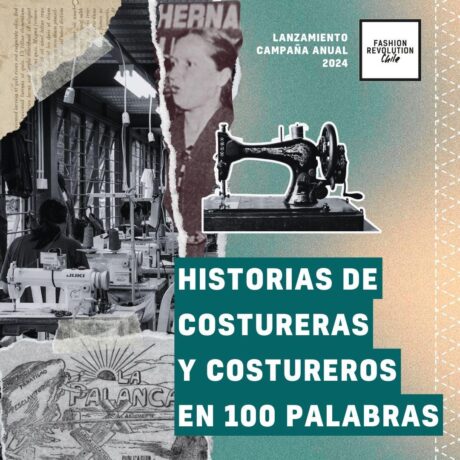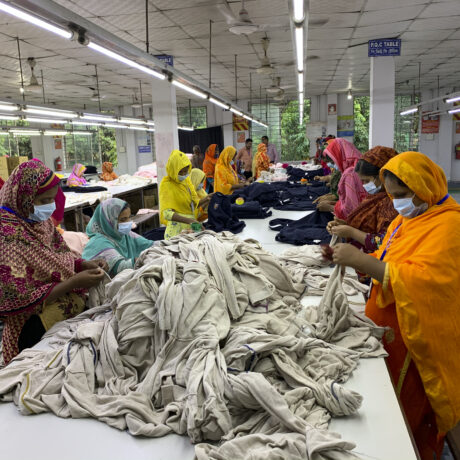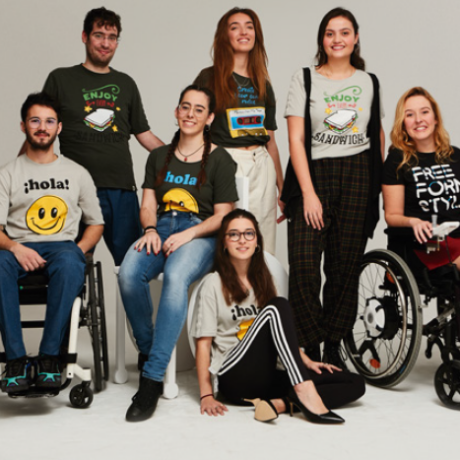This is what a fair trade factory looks like
Every purchase matters. When you buy fair trade, you can positively impact the lives of the people who make your clothes, improve communities, and protect the environment.
Follow the journey of garments through a fair trade factory in India, from thread and fabric to finishing and packing, and meet the people who make them…
Thread being woven into fabric
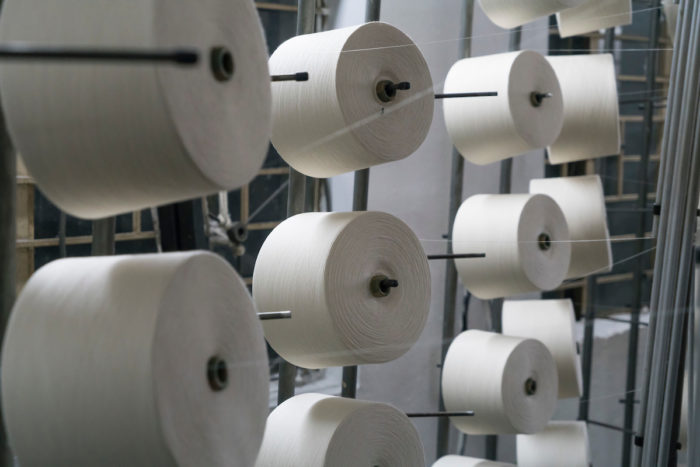
Operating the knitting department

Lakindar Ray, 26, from Samastipur, Bihar, an operator in the knitting department, has worked since 2008 at Rajlakshmi Cotton Mills in Howrah. Ray has two children. “I hope that Fair Trade consumers will continue to support us and our family. The first year I received my Fair Trade premium was a major change in life. My wife asked for some household goods and we bought a clothing cupboard. Next year, I hope to buy a TV. Whatever we buy with the premiums we receive, it’s like a memory of the year that has gone past. This is something I received from the factory, something to be proud of. I appreciate the transparency of the Fair Trade premium arrangement at our factory – everyone gets the same amount, people can join the committee and help make decisions for the worker body. Friends from other factories are envious that we have this benefit.”
Fabric being cut into garments

Preparing the fabric for sewing

Assembling t-shirts


Mohammad Zunaid Alam, 30, from Malda, West Bengal, from the sewing section, has worked for 8 years at Rajlakshmi Cotton Mills in Howrah. Alam has two daughters, 4 and 1.5 year old. “Since the Fair Trade program started here, the factory has improved overall and we have received different types of orders from abroad. I like that by working to make a good product, we are also able to help our families and each other. The past four years of premiums have really helped my family – one year, I was able to fix my roof; I’ve invested in savings which will double in 5 years. As my two daughters grow, they will need funds for furthering their education and to get married. I want to thank Fair Trade consumers for helping us improve our lives.”
Ironing

Cristy Martinez, 36, irons fabric at Nature USA, the first Fair Trade Certified factory in the U.S. She is excited to learn more about how the Community Development Premiums can benefit the workers, and even her family back home.
Sample making

Tharun Sardar, 36, from Howrah, West Bengal, has worked as a screen printer for 6 years at Rajalakshmi Cotton Mills in Howrah. Has 3 children. “Fair Trade not only provides us with valuable premiums but also helps broaden our market, allowing us to work with different clients. Over the past few years, I’ve improved my life by using the premiums that come back each year to invest in savings accounts.
“When I talk to other workers, friends from other factories, they’re always very curious about the Fair Trade program we have and ask how they can join specifically because of the Fair Trade premium program. I have helped two friends join my printing department and they are similarly happy to have the chance to invest in their own work and futures.”
Finishing
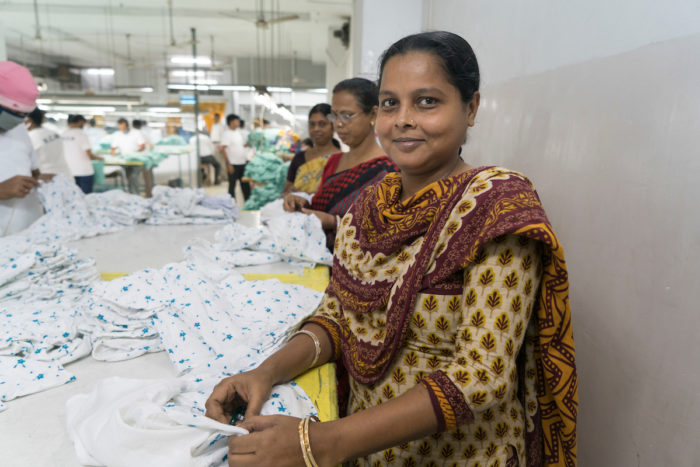
Rehana Middey, 34, from Howrah, West Bengal, works in finishing at the Rajlakshmi Cotton Mills in Howrah. She has 2 boys; both have graduated from 10th grade and are working in factories. “By working at this factory, I’m able to support my family and meet daily needs. Every year when we receive our Fair Trade premiums, I’m able to put them into savings – which may become important later in life. I remember the first year when the factory joined Fair Trade, I was able to buy a bicycle for my son to ride to school – I was so proud! If the customers buy our products, we can benefit and improve our lives while also providing good clothing for people all over the world.”
Packing






